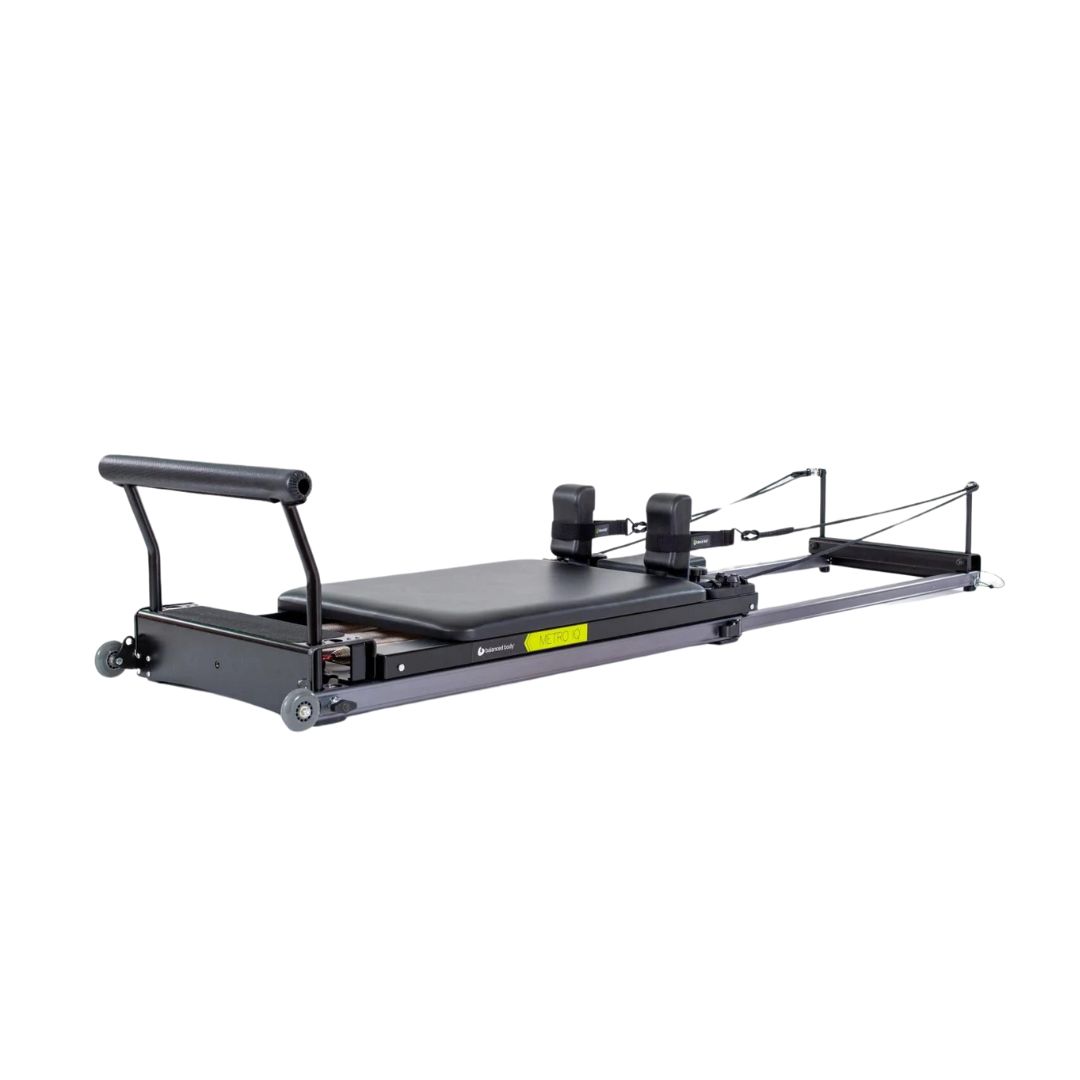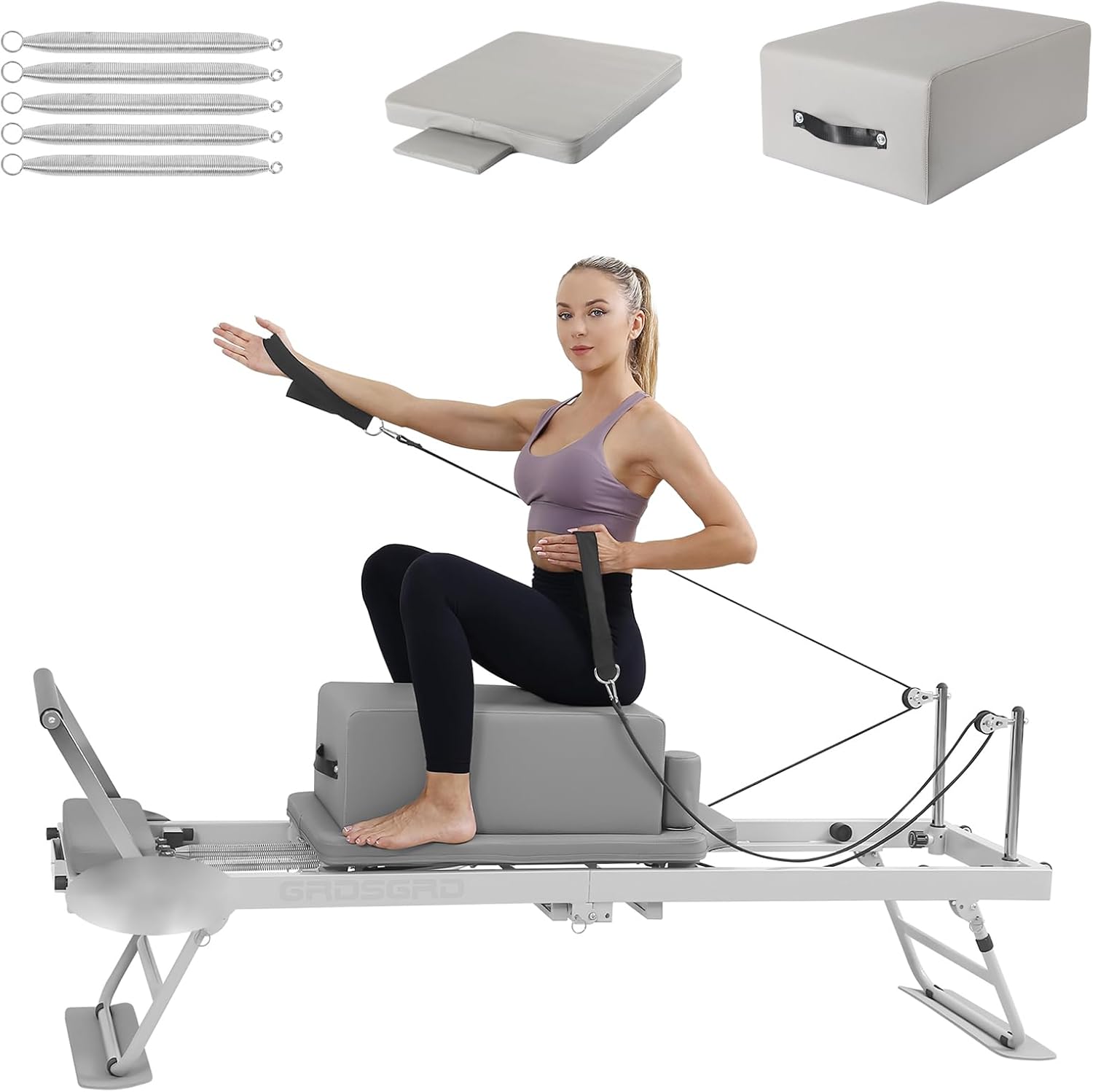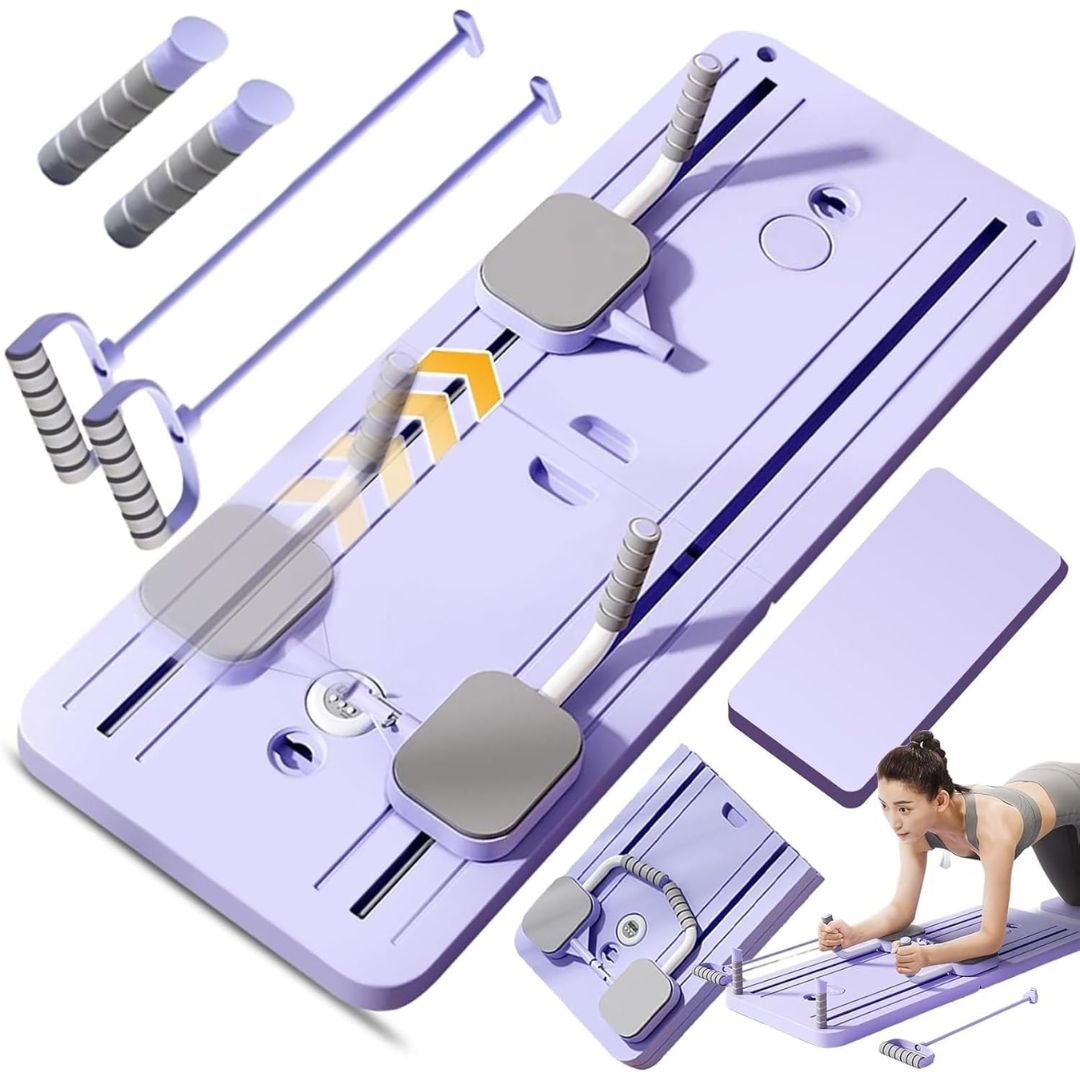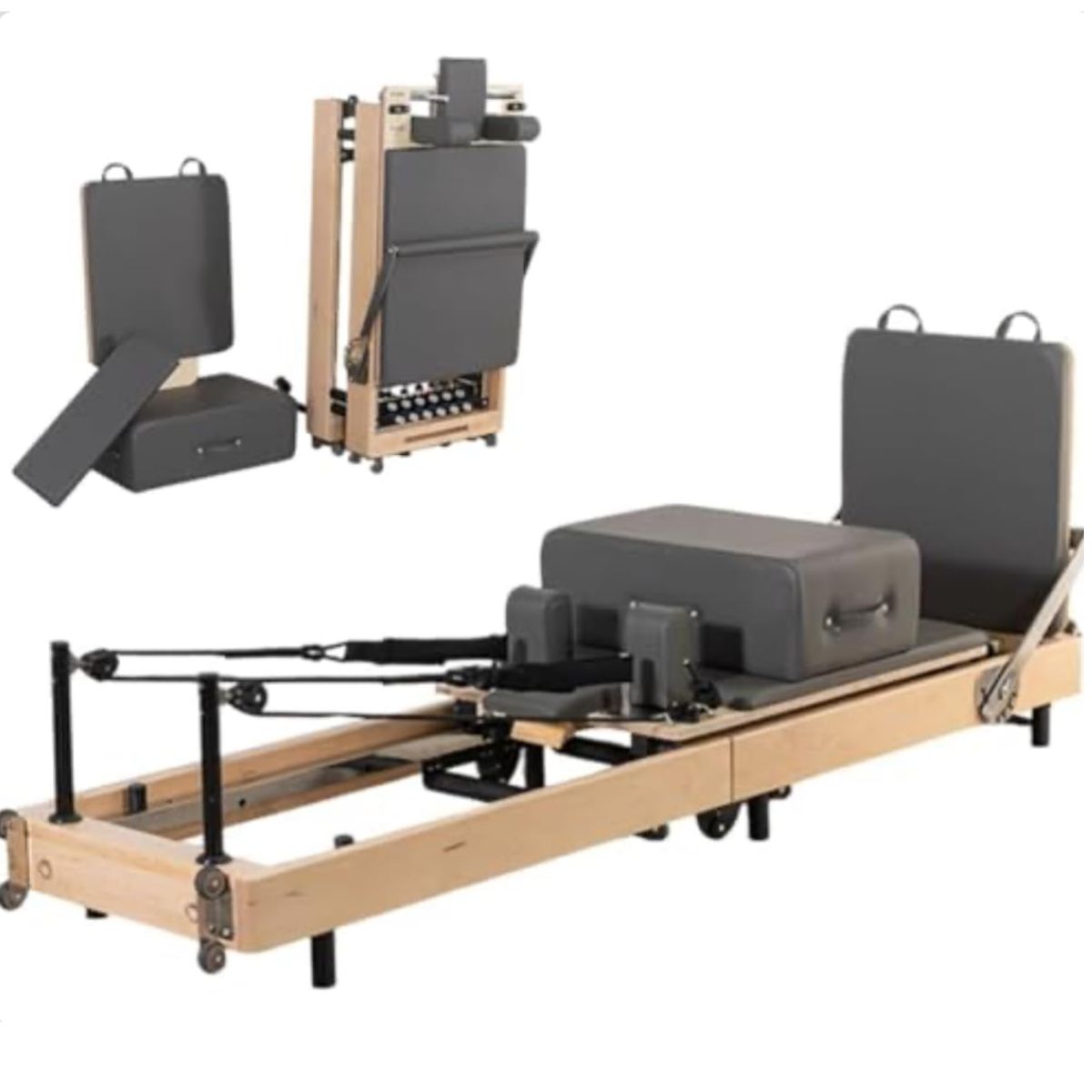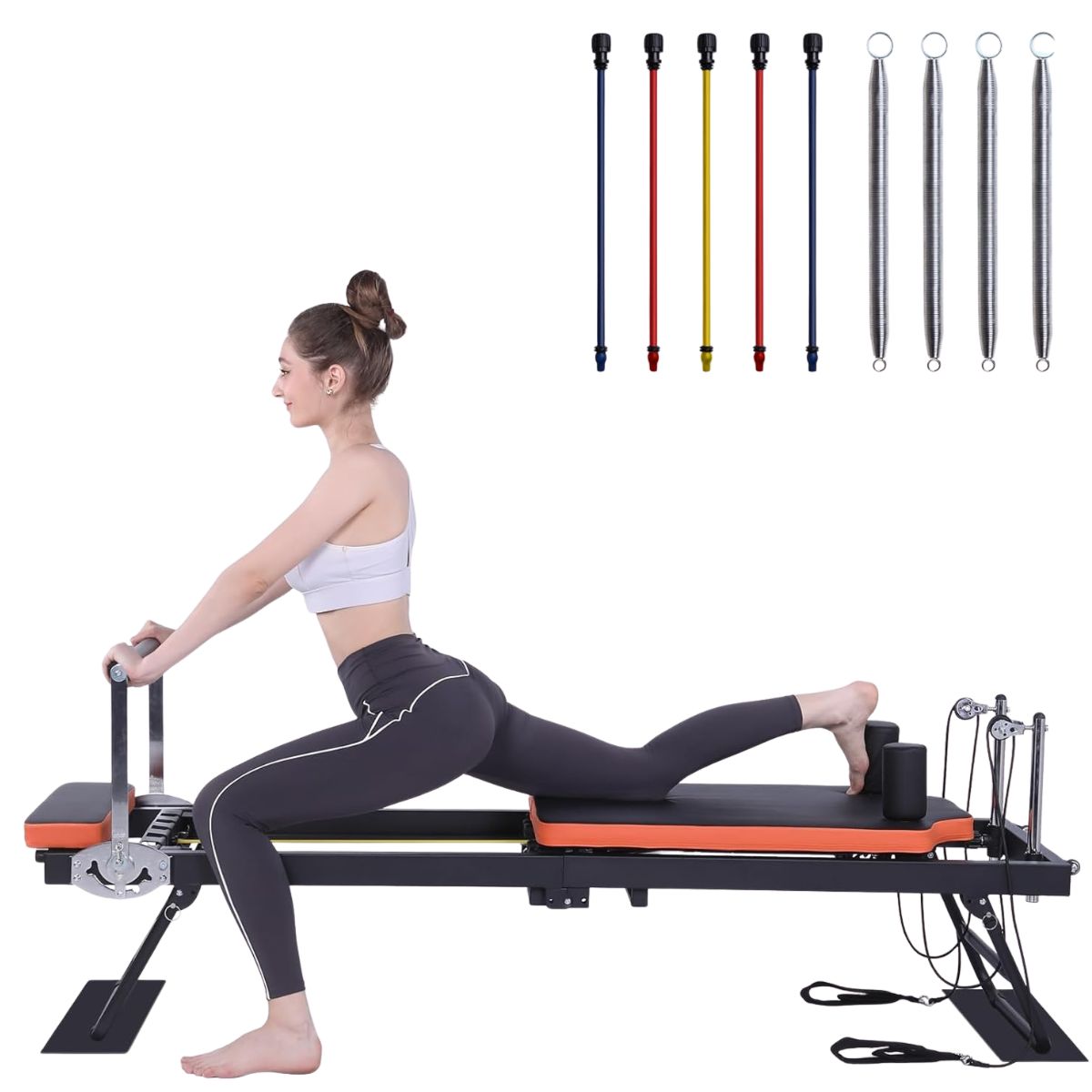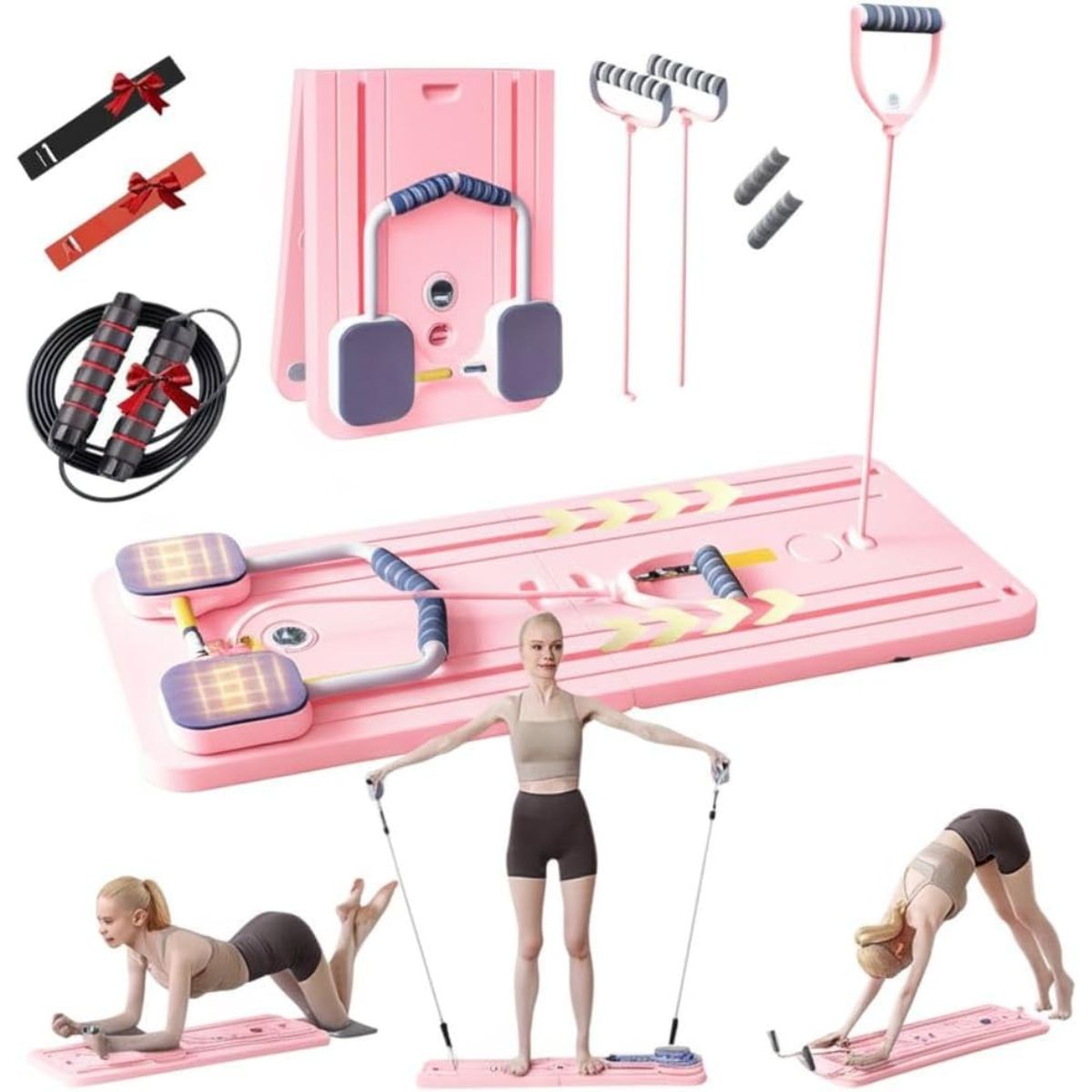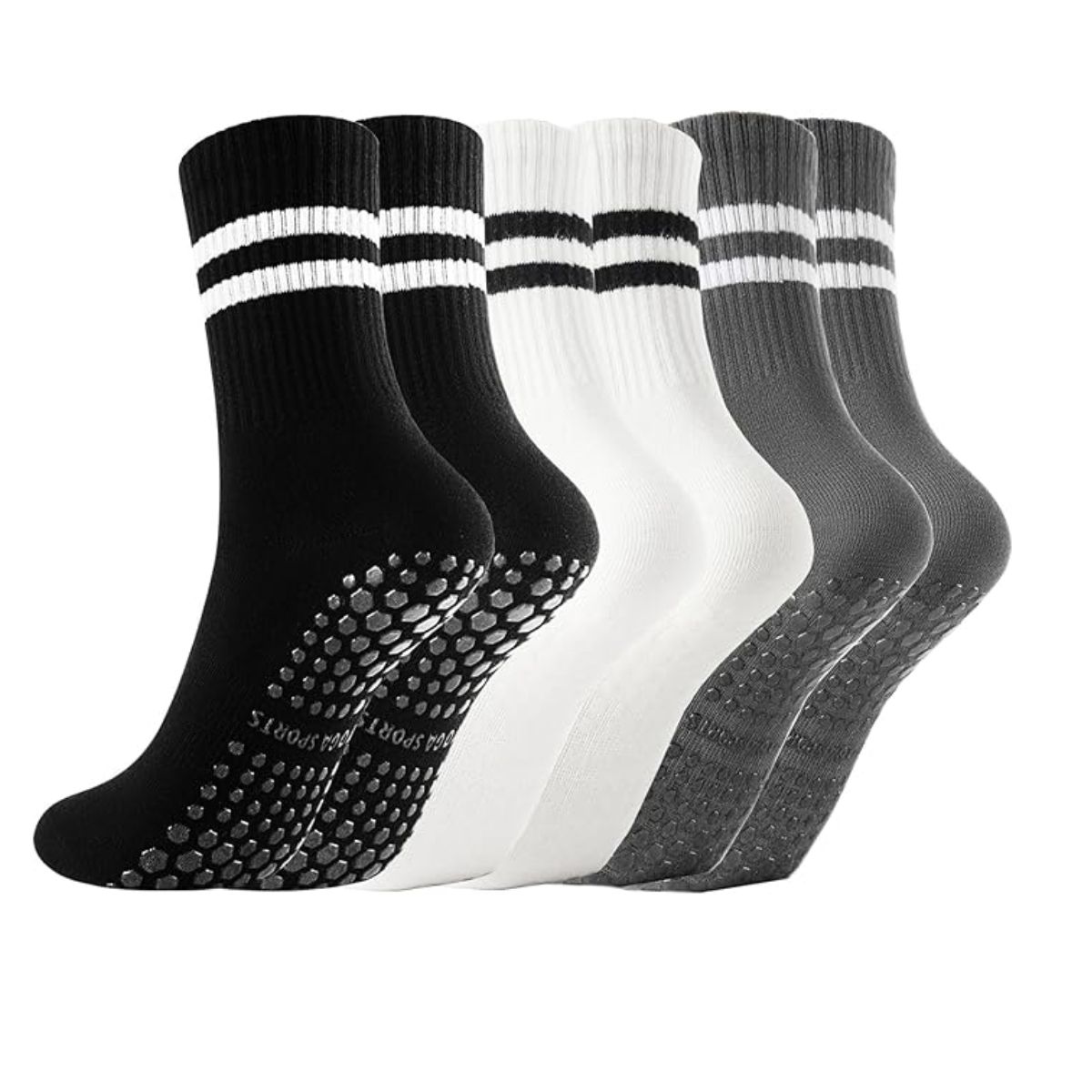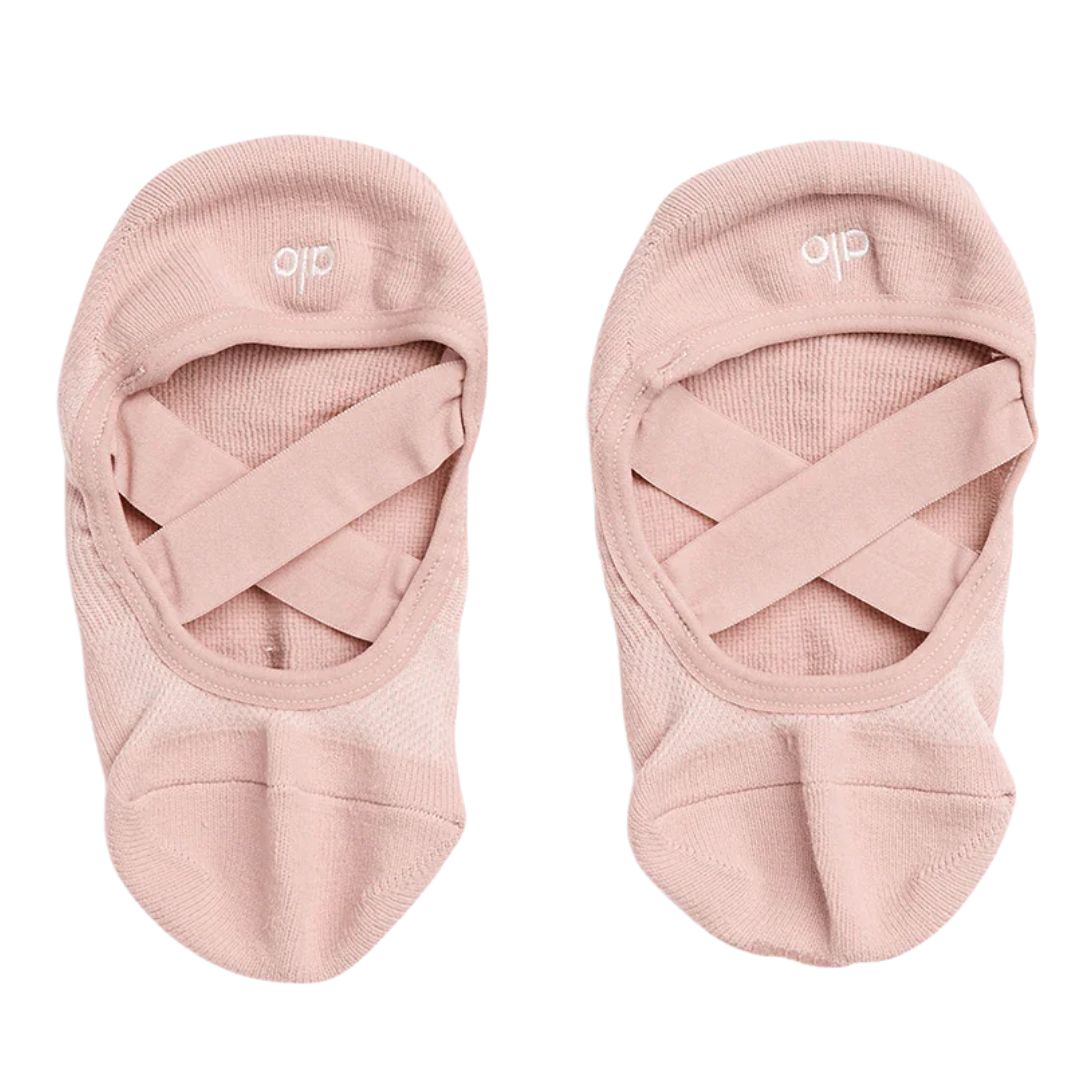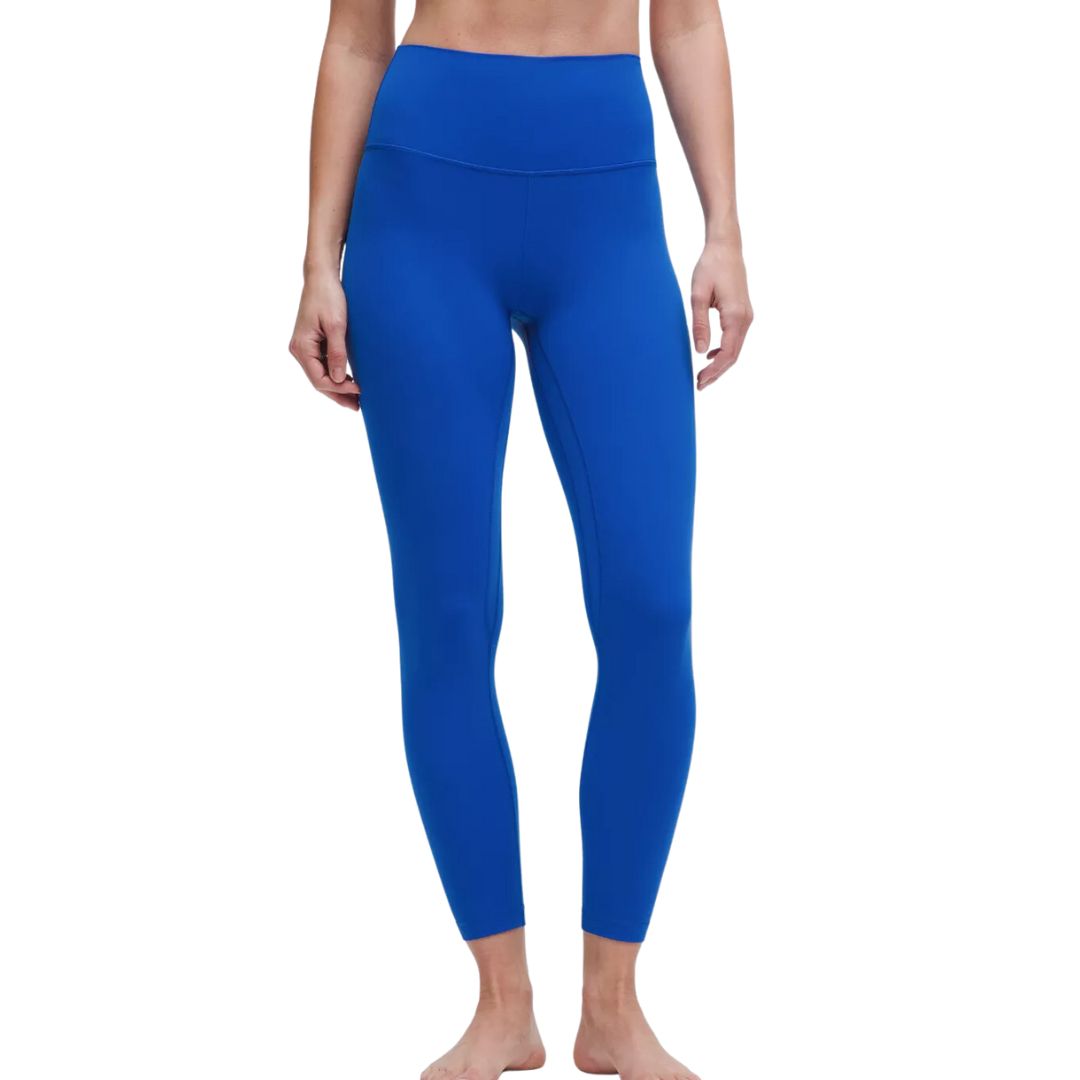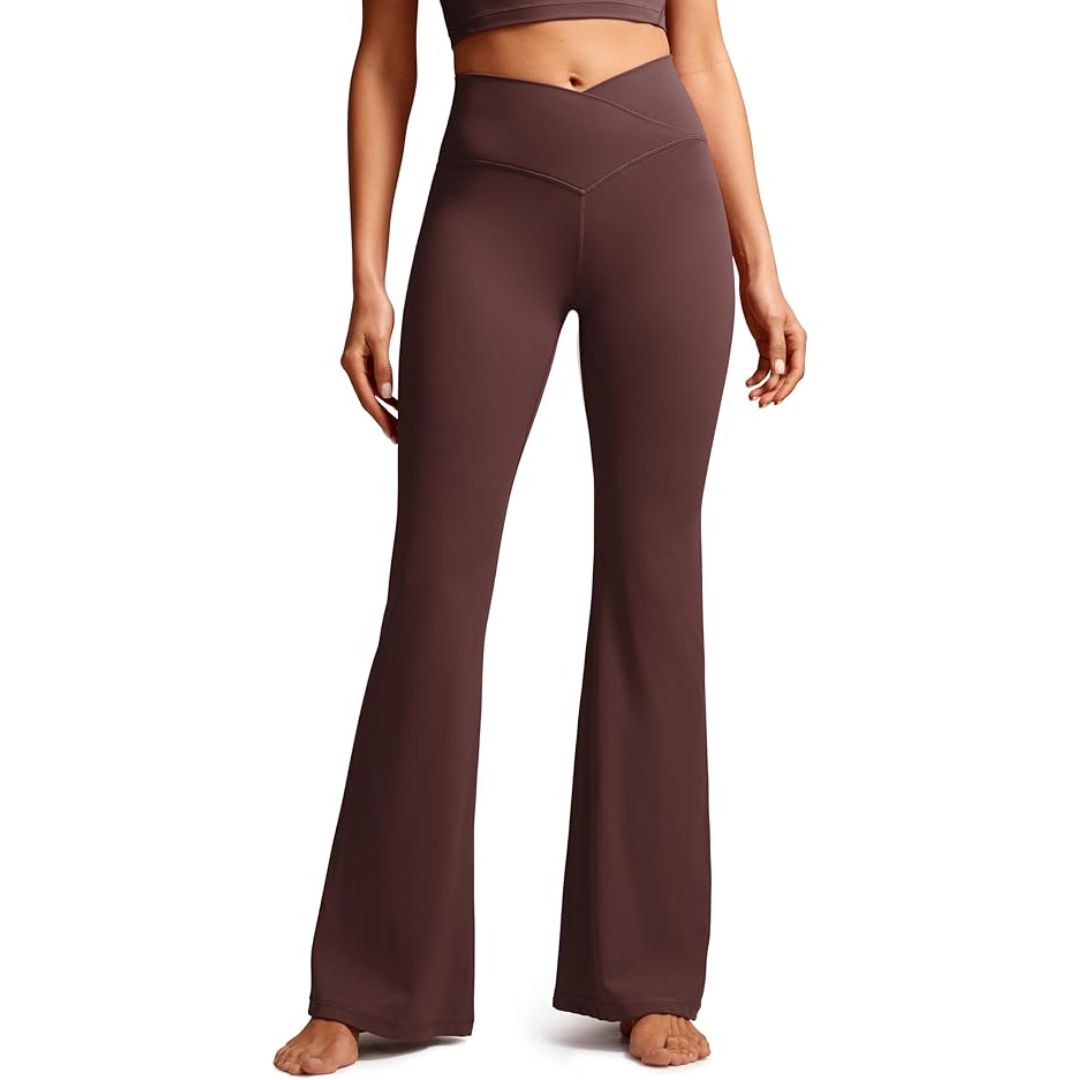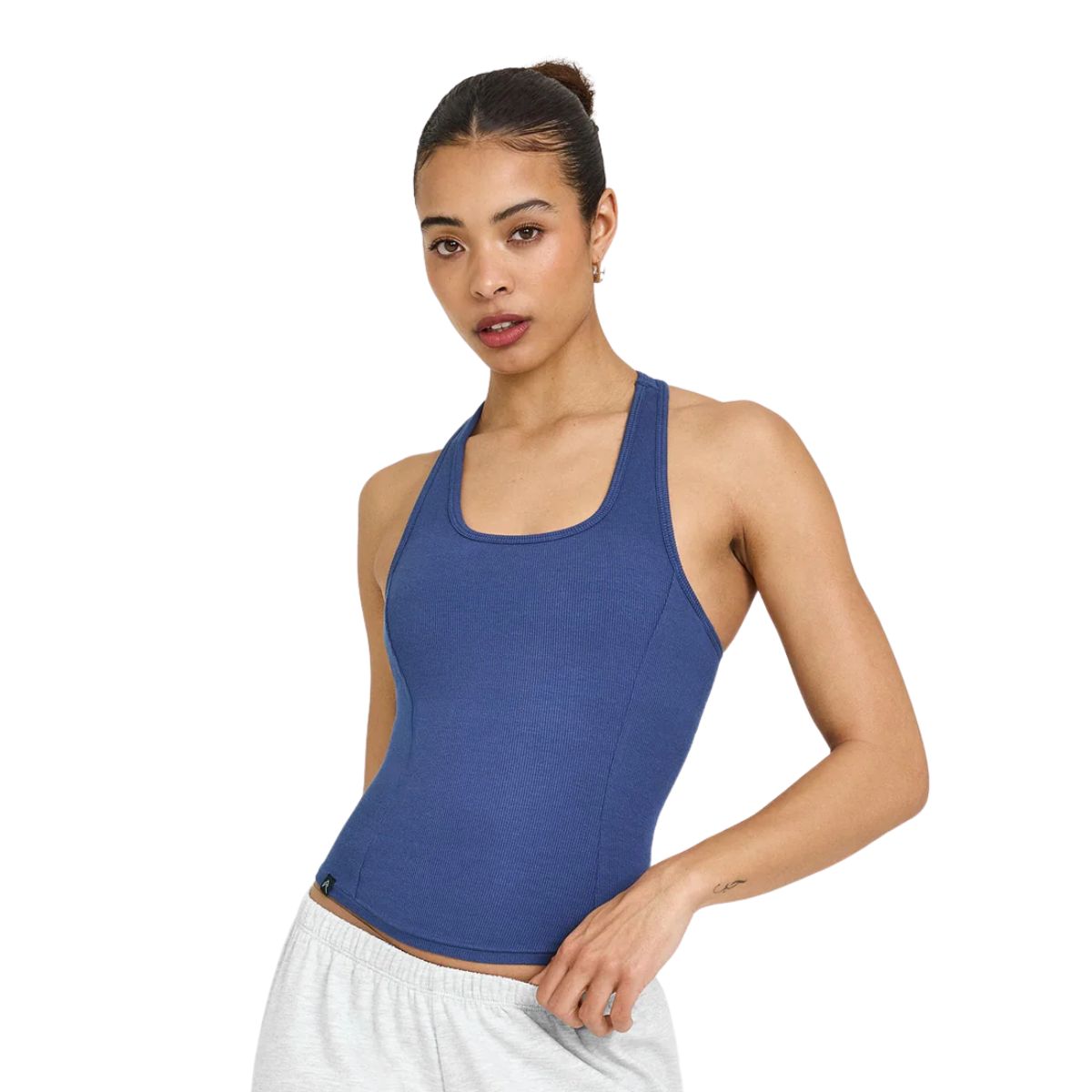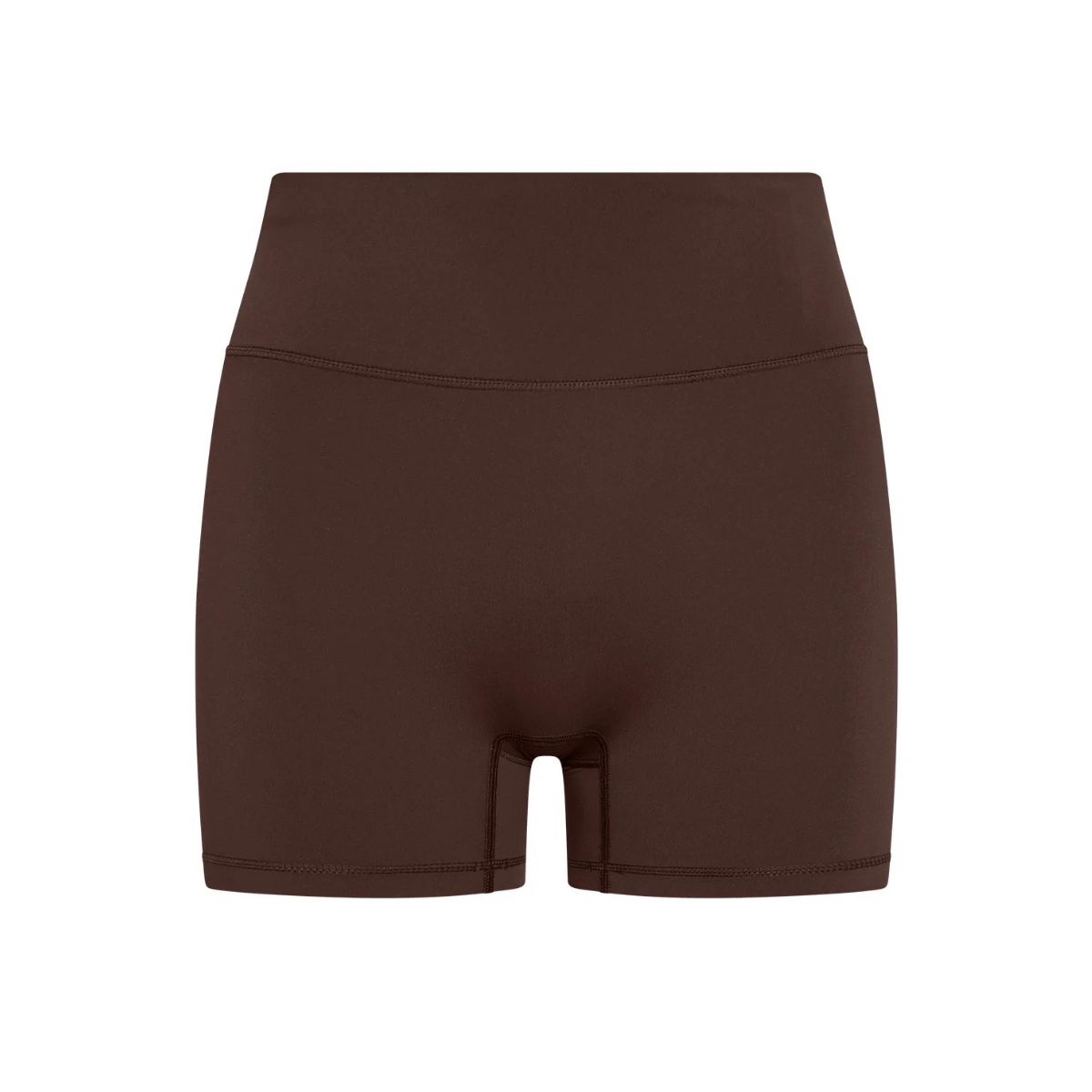I’ve Been Testing This At-Home Reformer Pilates Machine for Three Months – I’m, in a Word, Obsessed
Yes, you can do Reformer Pilates at home.

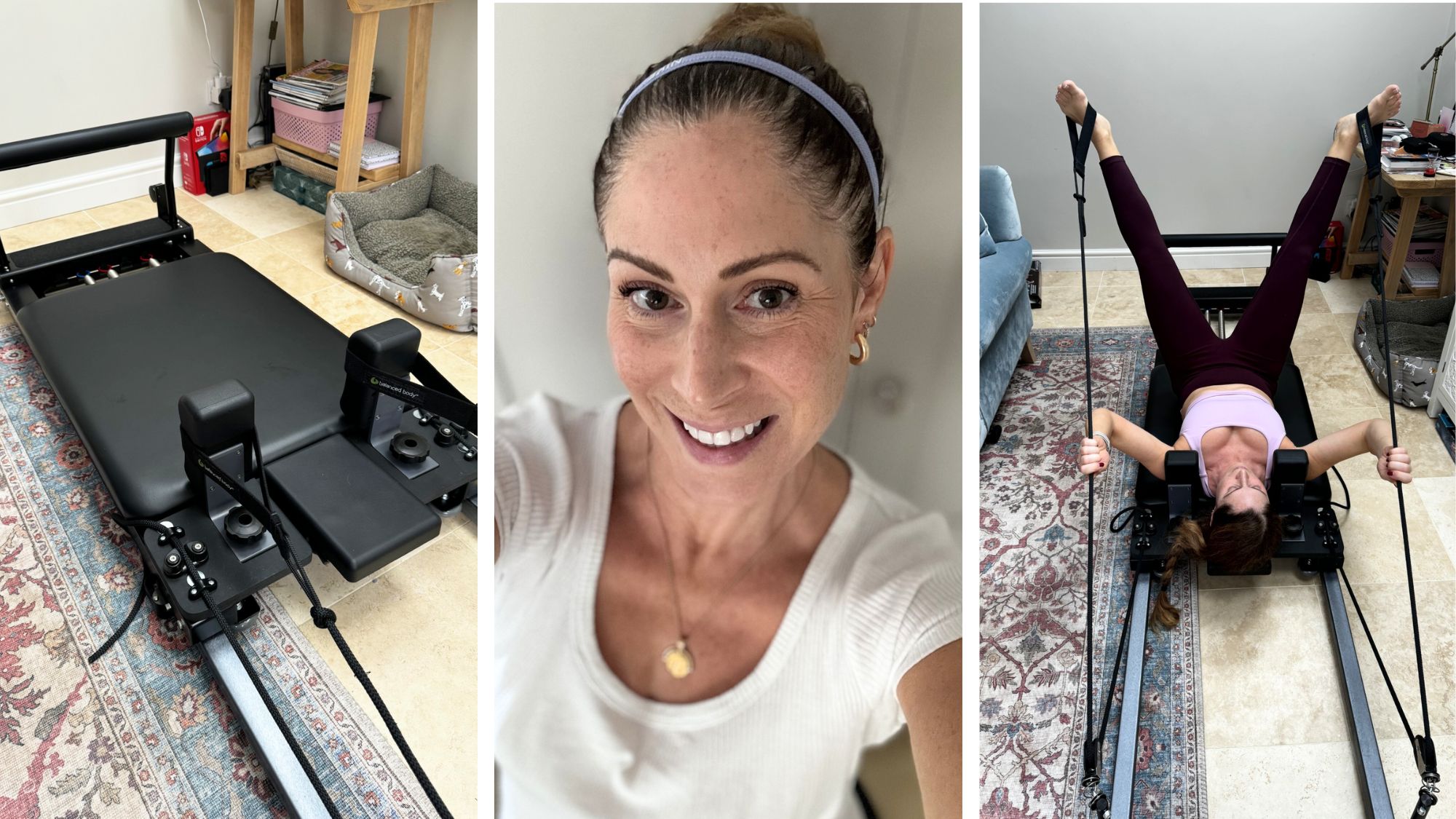
Article updated on 30th November 2025. This article was first published in May 2025, and has since been updated with new products and accurate pricing.
It's true that my love for all things Pilates knows no bounds, and I'm honestly thrilled that the practice is enjoying a wave of popularity right now. Thanks, in part, to its A-list celebrity endorsements (Harry Styles, Adele, Hailey Bieber, Jen An - need we go on?) and social media, the century-old method of strengthening and lengthening has seemingly never been as popular, with Google searches for the term at breakout every month.
Unlike some TikTok crazes, the workout delivers legitimate benefits - studies (such as this one, published in the Journal of Physiology & Behaviour) show that the benefits of Pilates span both physical and psychological benefits, including improved core strength, balance and posture and stress relief, too. It's easy to see how so many of us are hooked, and with what seems like a new iteration every week (wall Pilates, contemporary Pilates, Cadillac Pilates and Tower Pilates, we're looking at you), you're sure to find a style that suits you.
While I'm partial to pretty much all variations of the trending workout, it's safe to say that one method in particular has my heart forever: Reformer Pilates. An hour spent stretching and contorting my body courtesy of the pulleys, springs and carriage of a Reformer machine is pretty much heaven in my eyes, and like its mat-based counterpart, it's great for body and mind. While research into Reformer Pilates itself is limited, some studies (like this one, published in the Cureus Journal of Medical Science) show that Reformer Pilates in particular is beneficial for lowering cholesterol and insulin resistance, alongside maintaining a healthy body composition.
There is a downside, though. A regular Reformer Pilates habit can come at an eye-watering cost, with classes setting you back upwards of £30 a session or more, if you fancy a coveted spot in an uber-cool London studio. So, when I was invited to try an at-home Reformer Pilates machine, I literally jumped at the chance (using carefully controlled, precise movements, naturally). Would an at-home machine yield the same mind-body benefits as my IRL classes? Would the novelty wear off? And - importantly - where on earth would I keep it?
Keep scrolling to find out if the Reformer fitted into my life (and my home), plus how my body and mind felt after three months of testing. Don't miss our Editor's picks of the best at-home Reformer Pilates machines and best Pilates socks socks for your practice, too. Best Pilates exercises, at the ready.
At-home Reformer machines: Quick shopping links
- EFGETD Upgraded Pilates Reformer Board: £59.99 at Amazon (save 14%)
- Reformer Board Set: £49.99 at Amazon
- Dpiolrcag Foldable Pilates Machine: £240 at Amazon (save 40%)
- Foldable Reformer Pilates Machine: £279.99 at Amazon
- AYP Oak Foldable Reformer Pilates Machine: £1,200 at Amazon
- Metro IQ® Reformer: £1,715 at Balanced Body
My honest at-home Reformer Pilates machine review? I have some thoughts
What is an at home Reformer Pilates machine?
If the talk of an at-home Reformer machine has left you wondering what this looks like (and how on earth they fit in your home), allow us to explain. Much like the machines you'll be familiar with from studio classes, at-home Reformers consist of a moving carriage that looks a little like a bed (and in fact, the original Reformer machine was indeed a bed), with a headrest, weighted springs and pulleys attached.
"An at-home Reformer machine is a piece of Pilates equipment designed for home use, mirroring what is available in a studio," explains Pilates instructor Aleksandra Warburton. "It features a sliding carriage, differently weighted springs which you can adjust for resistance, and straps to assist or challenge movements, allowing for a wide variety of Pilates-based exercises, which target the whole body."
Celebrity news, beauty, fashion advice, and fascinating features, delivered straight to your inbox!
The Body Balance Metro IQ at-home Reformer machine that I tested
The difference with an at-home versus in-studio machine is, inevitably, the size and storage options. While it's totally possible to invest in a larger Cadillac (four post) machine, most of us will be looking for a piece on wheels, sitting low to the ground and that folds away for storage.
That's what the machine I tested was like - the Metro IQ from Balanced Body promises to be one of the easiest to shorten for storage, extending to 98 inches (249cm) during usage and folding down to 62 inches (157.48cm) when you're keen to put away. It also features handy wheels to make moving it around your space even easier.
Other need-to-knows: all of their machines feature five of their trademark springs (three red, one blue, and one yellow for a range of up to 46 tension options) and soft touch ropes, meaning that not only does the machine let you comfortably and easily adjust your settings. but it'll also be quieter than other at-home machine options.
It also comes with a two year warranty and weighs only 85lbs (or 39kg). While you can't add legs or the Tower add on to the Metro IQ Reformer, it is one of the most affordable options on the market, with some retailing for as much as three times the price.
What are the benefits of at home Reformer Pilates?
As you might expect, when used properly, the benefits of an at-home Reformer Pilates practice are much the same as attending a class IRL - with the added upside of harnessing these perks from the comfort of your own home.
"The main benefit of an at-home Reformer Pilates machine is convenience," agrees Warburton. "You can enjoy a full-body Pilates workout from home without needing to attend a studio. It allows you to tailor your routine and helps to support you in building strength, flexibility, and core stability. Plus, it's great for muscle toning and improving overall posture, as with any Pilates style."
However, the practice does come with some drawbacks. "The main drawback is cost—Reformer machines can be expensive, especially really good ones," agrees Pilates instructor and founder of Chloe's Pilates, Chloe Hodgson. " It’s a great idea to invest in a high-quality machine that offers smooth carriage movement and adjustable resistance settings to match your fitness level and goals. Also, they do require space, so you’ll need a dedicated area to use and store the machine. Another consideration is that without an instructor's guidance, it may be harder to self-correct form or alignment, which can lead to less effective workouts or even injury if you’re not careful."
Who are at home Reformer Pilates machines suitable for?
Full disclosure: Reformer Pilates does have some barriers to accessibility, and having an at-home machine by no means counteracts this. There's no denying it's an expensive piece of kit, and the cost is likely prohibitive for many of us, even when balanced against the cost of a weekly or fortnightly studio class.
That said, if you are in the market for an investment, the experts advise you to spend at least some time in an instructor-led Pilates studio first. "I'd tentatively say that an at-home Reformer isn't really suitable for everybody," cautions Warburton. "While home Reformers can, in theory, be used by most people, having some prior exposure to Reformer Pilates (through a group class or even a one-to-one) is strongly advisable. This ensures you understand how to use the machine safely, which is key, and how it should feel and how to perform exercises with proper form, reducing the possible risk of injury."
Subject to this caveat, if your budget (and floor space) allows, an at-home Reformer machine can be a fantastic addition to an at-home fitness regime, offering a low-impact, joint-friendly workout for Pilates aficionados. "With the right knowledge and approach, an at-home Reformer can be an amazing tool for building strength, improving flexibility, and enhancing your overall Pilates practice," notes Hodgson.
I tried the Balanced Body Metro IQ at-home Pilates Reformer machine for 3 months - my review
Month one
Having practised both mat and Reformer Pilates for a number of years now, I jumped at the chance to try a Reformer machine of my very own. As I mentioned above, I was lucky enough to be able to get hold of the super compact and lightweight Balanced Body Metro IQ Reformer.
As soon as it arrived I was itching to get it set up - but, full disclosure, I did have to enlist some help to get me started. Thankfully, it came with pretty clear instructions, but I'd say it's a two-person job, if only because it's fairly heavy.
Once set up, I found it surprisingly similar in feel to the machines I'm used to in class. The springs were satisfyingly weighty, adding a lovely resistance to my moves. Initially, I searched for a YouTube at-home Reformer workout, but (even as a seasoned Pilates-goer) without an instructor to guide me, I found the moves tricky to follow, and I wasn't really sure if I was doing them right. As it turns out, there really is no substitute for a hands-on, real-life teacher.
However, I reached out to to the experts (a serious perk of my job, which I realise isn't available to everyone) and, following a fantastic one-to-one online session with Balanced Body's Education Programme Co-ordinator, Christine Crooks, I felt way more confident as I glute bridged and stretched my way through a workout. Yep - I even felt the infamous Pilates shake.
Suitably at ease with both setting up the machine and working out on it, I vowed to use it at least once a week. The moves I was most excited to try included some foot mobility work, which Crooks assured me would improve my running and strength work. Having the machine set up underneath my TV was actually a stroke of genius, too - being able to distract myself with a favourite show while doing core work was a bonus.
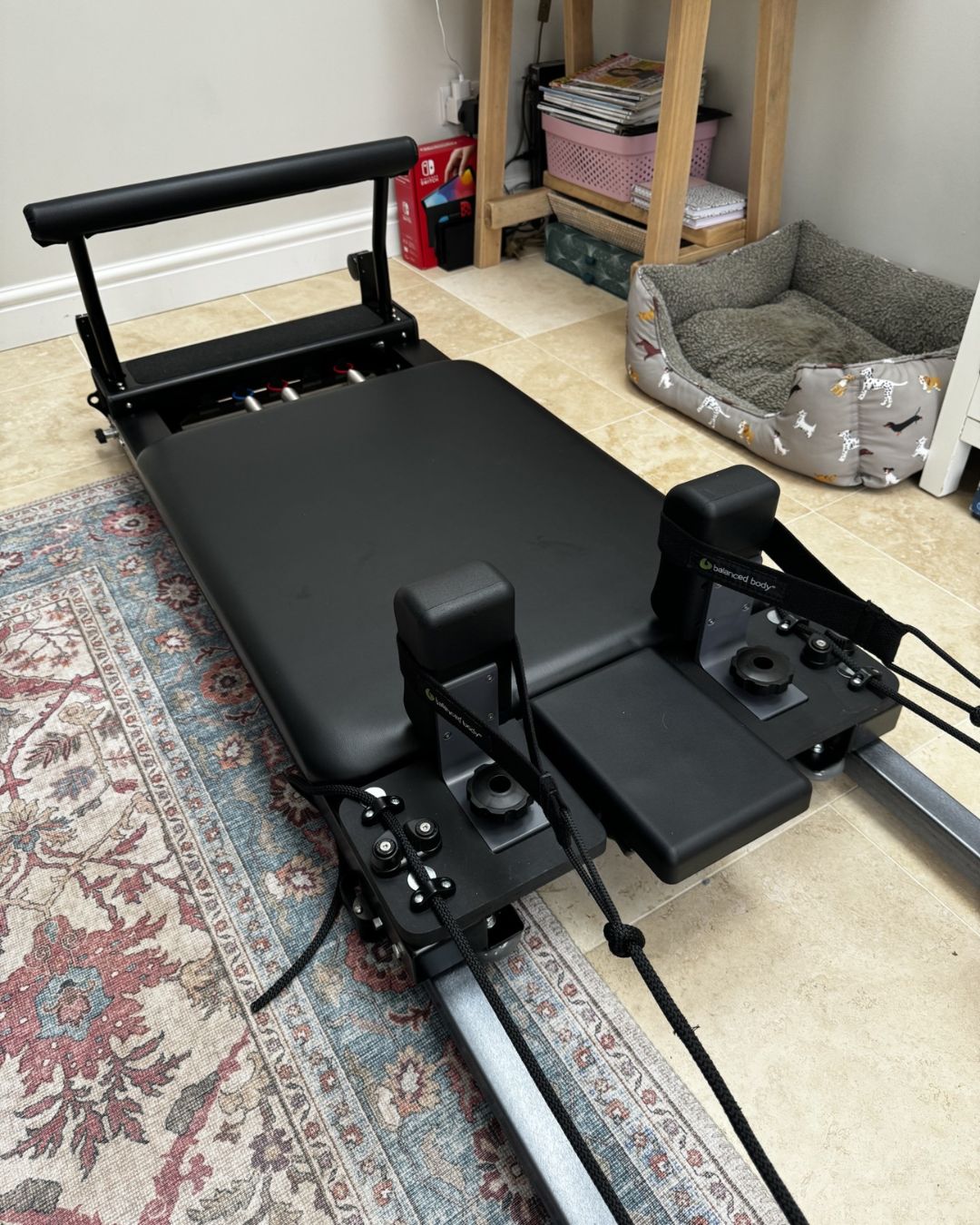
The Balanced Body Reformer that Anna tested for three months
Month two
I'll level with you - I didn't use the Reformer as much this month as I had the previous month, but this was mainly due to it being my children's summer holidays (I challenge anyone to set up an at home machine and have time/space to use it during August) and I was struck down with a rather nasty bout of Covid for a couple of weeks, too.
That said, as I was recovering and starting to gently move my body again, the Reformer really came into its own as I was able to use it to stretch my spine and elongate my muscles after a while of sitting and lying in bed, perfect for the week when I wasn't quite ready to attempt anything too cardio-heavy.
I also loved how handy its design was for easy, foldaway storage. The wheels made it a dream to get out and put away, too.
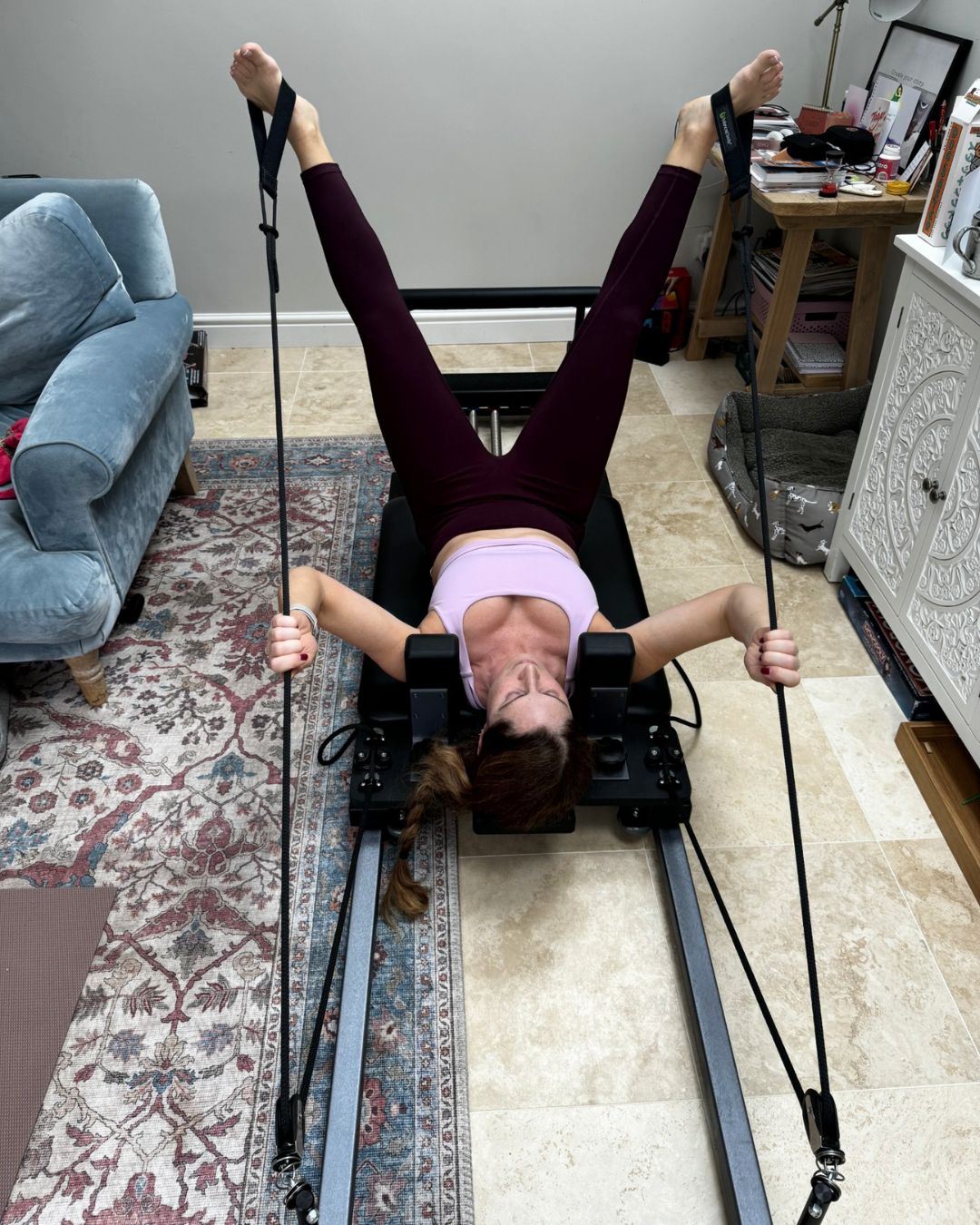
Anna on the Reformer machine during her three month trial
Month three
Back to full strength and fitness, hopping on the Reformer has become second nature to me, even if just for a quick five-minute cool-down stretch after a run, or to mobilise my spine after sitting at my desk all day.
For me, it hasn't quite replaced an in-person class, as I love the interaction of working out with other people - plus, those tiny tweaks an instructor makes to your form and technique really do make all the difference.
But it doesn't have to be an either/or, as Crooks explains. "Speaking as someone who likes an accountability partner (or community) there is huge value in recognizing how you will be most successful in your physical and mindful practice," she tells MC UK. "If you enjoy the social aspect of going to a studio, why deprive yourself of that?! And, on the other hand, if you prefer to practice on your own at home, then go for it. Either way, engaging in a consistent, mindful practice is going to be beneficial."
Will I continue to use it? Absolutely - but I would say that it's best suited for those of you who absolutely love home workouts and would choose them over in-studio classes.
This article was originally published in September 2024 and has since been updated.
Shop Reformer Pilates kit:
How can we use an at home Reformer Pialtes machine safely?
"The number one rule I state in class hundreds of time is to never step on the carriage first," warns Warbuton. "Especially when only light springs are on, as you can lose your balance and fall. Overall please make sure you’re confident in using the equipment and are familiar with how to adjust the springs and straps for different exercises. Always focus on good posture and controlled movements, and consider following an online class or instructor guidance to give yourself a well rounded and designed workout."

Anna Bartter is a freelance journalist who writes about health, fitness and women's lifestyle for publications including Stylist, Metro and Psychologies, among others.
She's always on a quest to find a variety of fun and functional workouts that give you the most bang for your workout buck and she's passionate about championing movement for everyone's mental and physical wellbeing.
